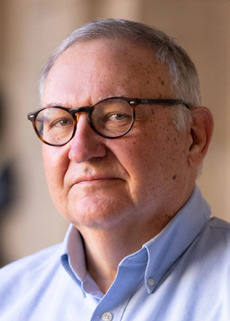Labels in politics are a tricky thing, particularly in Nebraska.
If you’re a “Republican,” do you align with the wing of the party that identifies with former governor and U.S. Sen. Pete Ricketts? Or do you roll with the new GOP, the group that tossed out Ricketts’ loyalists? (You might also be a “moderate” Republican, though they are harder to find than a 25-cent cup of coffee.)
Same holds true for the Democrats. Are you a Democrat who holds more moderate views on abortion and government spending, like that of former U.S. Sen. Ben Nelson (the last Democrat to hold statewide office)? Or are you marching with the more progressive wing of the party, one that wants more action on social justice issues and climate change?
This brings us to the surprisingly hotly contested race for U.S. Senate this fall between incumbent U.S. Sen. Deb Fischer and Omaha mechanic Dan Osborn. Political labels have been a big deal in that mud-slinging contest.
By now you’ve been subjected to the wall-to-wall television commercials that darkly label Fischer, a Republican, as “out of touch” and in violation of her pledge to serve only two terms. They are followed by ads that slam Osborn, a registered nonpartisan, as “deceptive Dan” and not really an “independent” but the deadly “D” word — Democrat.
An alert reader, after reading a past column in this corner about the surprisingly close race, suggested that more information should be presented about who is financially backing each candidate.
Who is giving money to a candidate can say something about the politics of that candidate, so let’s take a look.
Osborn, who has been a registered nonpartisan since at least 2004 according to state voting records, is being criticized for taking money from groups that back Democrats.
Fischer is being attacked for taking money from big-time corporate interests – money Osborn says he’s not taking – and being part of what’s wrong in Washington.
In traditional fundraising by the candidate, Fischer has a big lead, out-raising Osborn $6.2 million to $1.6 million, according to Federal Election Commission figures. (Please note, those figures were as of June 30, the most recent report as of this writing, so that’s pretty old stuff (and by the way, U.S. Senate candidates as a whole had raised a whopping $1 billion-plus by that time)).
About 43% of Fischer’s fund-raising came from individuals, FEC figures indicate, while Osborn got about 95% of his funds from them.
Fischer’s big committee backers were GOP Senate colleagues, such as funds run by John Cornyn of Texas and John Thune of South Dakota. But she also got funds from the health care and nursing home industries, and a group called the American Israeli Public Affairs Committee.
Osborn, meanwhile, got donations from several unions, which figures because he was the president of his union at the Kellogg’s plant in Omaha.
It’s the spending by independent committees – not directly affiliated with the two candidates – that tell more of a story, and Osborn led in that category, as of June 30, by $5.3 million versus $1.2 million for Fischer.
A big chunk of the outside spending to support Osborn has come from a group called “Retire Career Politicians,” which had raised about $3.6 million for his run, according to OpenSecrets, which tracks campaign spending. OpenSecrets labels the group – which says its goal is to replace politicians who “lose touch” with the voters – as “Democratic/ liberal.”
An organization called “ActBlue,” a Democratic Party fundraising entity, has also helped collect donations for Osborn, according to the Nebraska Examiner. And the Fischer campaign says much of the $400,000 being spent to support Osborn by the super PAC, Nebraska Railroaders for Public Safety, comes from Democrat groups.
But since summer, after some polls showed Osborn leading or at least close, Republican forces have mobilized with millions of dollars to help Fischer and attack Osborn.
The National Republican Senatorial Committee, which usually doesn’t contribute in reliably Republican races, made an ad buy, and a so-called “super PAC” (political action committee) affiliated with Senate minority leader Mitch McConnell, a friend of Fischer’s, has also chipped in. Bigger money is coming from a conservative super PAC funded in part by Joe and Marlene Ricketts, the parents of U.S. Sen. Ricketts. That PAC, “Ending Spending,” has reserved nearly $1.4 million in television ads to run through Oct. 22, the Examiner’s Aaron Sanderford reported. Another conservative PAC, Heartland Resurgence, has spent nearly $500,000 to attack Osborn.
To be fair, “independent” PACs, with no partisan affiliation, are as rare as rainfall this autumn, so any challenger to a GOP senator would have to tap into Democrats and moderates to be competitive. But Osborn is getting Democrat support, though he has sent a “cease and desist” letter to GOP forces to stop falsely labeling him as a “Democrat.”
Politicians, when asked if campaign donations impact how they vote, always deny that. They say it only gives such donors “access” to state their views on an issue.
But come on, you gotta figure that campaign donations count for something, and they do give an indication of the preferences of a candidate.
It’s up to the voters to decide this fall how big a deal “who backs who” will be.
Paul Hammel has covered the Nebraska state government and the state for decades. He retired in April from the Nebraska Examiner. He was previously with the Omaha World-Herald, Lincoln Journal Star and Omaha Sun. A native of Ralston, Nebraska, he loves traveling and writing about the state.

.jpg)










